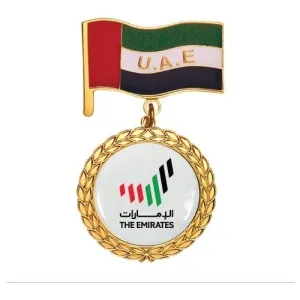The Significance of Corporate Gifting during Festivals and Holidays in the Middle East and Africa
The Significance of Corporate Gifting during Festivals and Holidays in the Middle East and Africa
Corporate gifting is a practice deeply ingrained in the cultures of the Middle East and Africa, particularly during festivals and holidays. These regions are known for their rich cultural traditions, strong sense of community, and emphasis on hospitality. In this essay, we will explore the significance of corporate gifting in these regions, examining its cultural, social, and business implications.
Cultural Traditions
In both the Middle East and Africa, gift-giving is considered a fundamental aspect of social interaction and relationship-building. It is deeply rooted in the values of generosity, respect, and reciprocity. During festivals and holidays, such as Eid in the Middle East and various religious and cultural celebrations across Africa, the exchange of gifts serves to strengthen bonds between individuals, families, and communities.
Social Cohesion
Corporate gifting plays a vital role in fostering social cohesion and harmony within organizations and across networks of business associates. By exchanging gifts, companies demonstrate appreciation for their employees, clients, and partners, thereby reinforcing positive relationships and enhancing loyalty. In the Middle East and Africa, where personal connections are highly valued in business dealings, corporate gifting serves as a tangible expression of goodwill and trust.
Symbolism and Meaning
Gifts exchanged during festivals and holidays often carry symbolic significance, reflecting cultural traditions and values. For example, in many Middle Eastern countries, dates, sweets, and traditional handicrafts are commonly exchanged during Eid celebrations, symbolizing warmth, hospitality, and prosperity. Similarly, in Africa, gifts may include locally made artisanal products, symbolic of heritage and craftsmanship. The thoughtful selection of gifts demonstrates an understanding and appreciation of cultural nuances, further strengthening interpersonal connections.
Business Etiquette
In the corporate world of the Middle East and Africa, gift-giving is governed by a set of unwritten rules and etiquette. It is essential to observe cultural sensitivities and customs when selecting and presenting gifts. For instance, in some cultures, offering gifts with the left hand or giving alcohol may be considered inappropriate. Understanding these nuances is crucial for building and maintaining successful business relationships.
Strategic Implications
From a business perspective, corporate gifting during festivals and holidays presents strategic opportunities for companies to enhance their brand image, foster customer loyalty, and generate goodwill. Thoughtfully curated gifts can leave a lasting impression on recipients, reinforcing positive associations with the company. Moreover, corporate gifting can serve as a competitive differentiator, distinguishing companies that prioritize relationships and cultural understanding.
Conclusion
Corporate gifting during festivals and holidays holds immense significance in the Middle East and Africa, reflecting cultural values, fostering social cohesion, and driving business relationships. By embracing the tradition of gift-giving and adhering to cultural etiquette, companies can strengthen their connections with employees, clients, and partners, ultimately contributing to their success in these dynamic and diverse regions.
Spotlight on Trending Promo Gear
Browse the most popular and trending Corporate Gifts




















